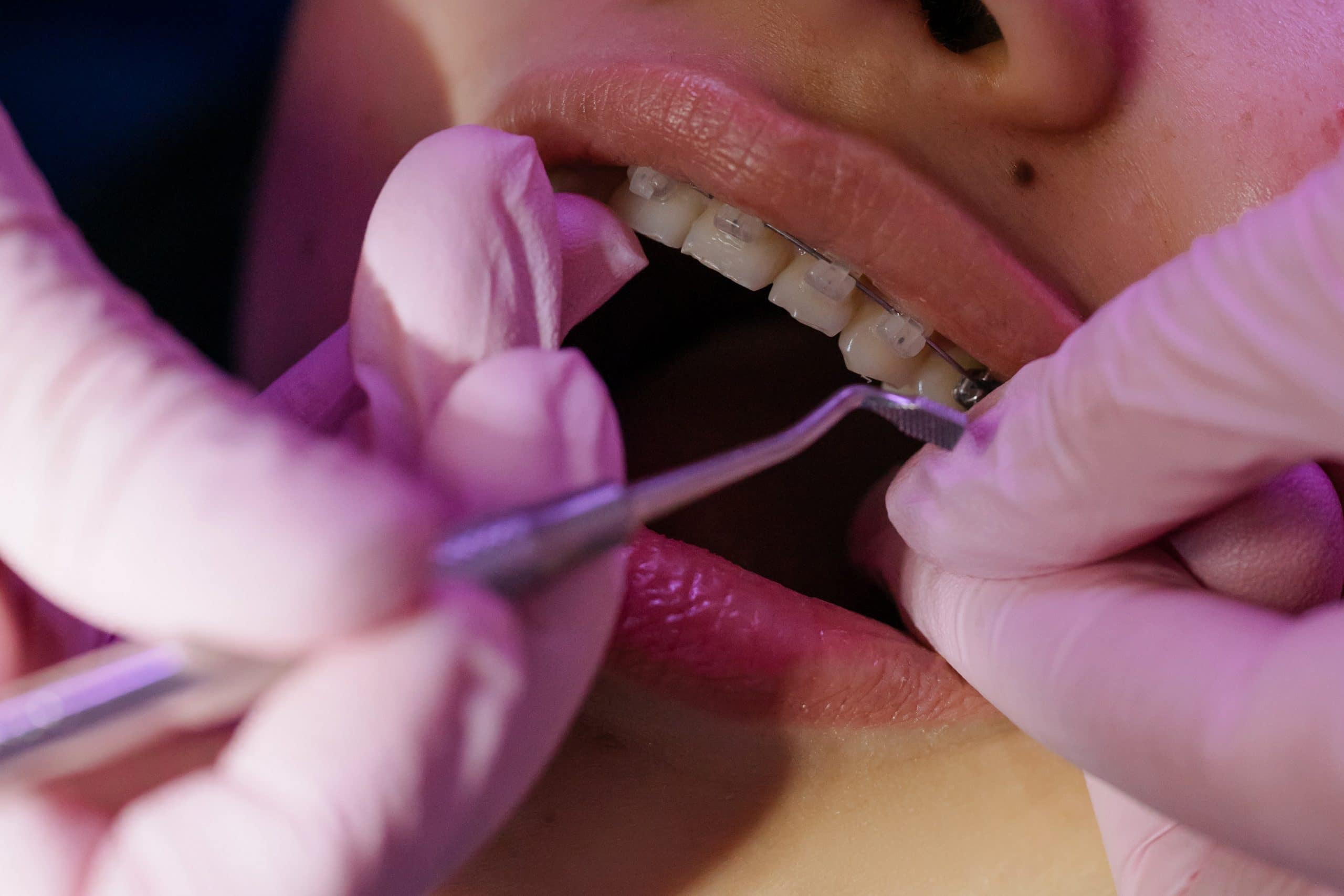Do Braces Hurt? All About Braces Pain and How to Ease it
You’ve just been told that you need braces either to straighten your teeth or to help your oral health. The first thought that might come to you is; will getting braces hurt? The short answer is no; getting braces on does not hurt.
Braces Procedure

At the bonding appointment, your teeth will be cleaned before the brackets are placed. The brackets are carefully bonded to each tooth. After all the brackets are bonded, the wires are placed in the brackets using small rubber bands, called ligatures.
On the teeth that were separated, bands will be fitted. This process can be a little uncomfortable, and the cement that is used to glue the band on the teeth will taste sour. At no point should this procedure be painful, however. There might be a little pressure here and there from the bands, but let your orthodontist know if it becomes too much.
Do Braces Hurt After They Are Put On?

The soreness comes from the teeth shifting and moving simply because your teeth have not been forced to move before. This sudden movement may be perceived as pain. The gums and teeth will get sore from the physical braces. The soft tissues may get scratches and imprints from the new objects in your mouth. Your tongue might also get a little scratched as your mouth adjusts.
After you get braces you might feel:
- Pressures on the gums and teeth especially while eating
- Pain on the inside of the cheek
- Discomfort on the tongue; with a new sensation in your mouth you’ll probably run your tongue over the braces, which may cause irritation
If you have pain from the movement of your teeth, it should last only about a week at most, going away usually after four days. Your mouth will feel normal in about a month. If you continue to have severe pain after a week, contact your orthodontist to make sure everything is correct.
Does it Hurt to Have Braces Tightened?
Adjustments to your braces will happen every 4-8 weeks, when your orthodontist will check on your progress. Your orthodontist might tighten the braces as the teeth shift into their correct places. Often, tightening them will cause some pressure and soreness for a few days. However there are a few ways to ease the discomfort of living with braces.
How to Make Braces Stop Hurting

- Over the Counter Pain Medication – Medications like ibuprofen or acetaminophen can help reduce the pain. Make sure to follow the instructions and check for any allergies before taking it and talk to your doctor about any drug interactions.
- Oral Analgesic – A numbing agent like Orajel or Anbesol placed on the teeth or gums can desensitize your mouth to the pain. Use a cotton swab or clean hands to apply it and follow the directions.
- Rinse with Warm Salt Water – Make sure not to swallow it, but a good swish of warm salt water (1/4 to ½ teaspoon of salt to every 8 oz of water) will help to disinfect any cuts or sores in your mouth and reduce inflammation.
- Keep it Cool – Apply a cold ice pack to your jaw to help with swelling and reduce the inflammation. Try sucking on an ice cube or drinking cold water. The cold will numb your mouth for relief.
- Apply Orthodontic Wax – Your orthodontist can provide you with the wax which – when applied to your braces – helps prevent irritation on the cheeks, lips, and gums.
Top Foods to Eat When You Have Braces

- Oatmeal
- Smoothies
- Soft fruits like bananas or berries. Applesauce
- Mashed Potatoes
- Yogurt (both regular and frozen)
- Pasta and Rice
- Eggs
- Meats: soft cooked chicken, lunch meats, and meatballs
- Soups
- Bread: soft breads, tortillas, some muffins
When eating with new braces, remember to cut up your food into smaller pieces to make it easier to eat. You want to give your mouth as much of a break as possible while you adjust to your braces.
Making it Through Braces Pain
Just remember that the pain and discomfort from your new braces is temporary as your mouth adjusts and shifts to their new position. Continue taking care of your teeth, following your orthodontist’s instructions, flossing and brushing to maintain good oral health. While it may seem like a hassle to have them, braces are well worth it for a healthy, straighter smile.


